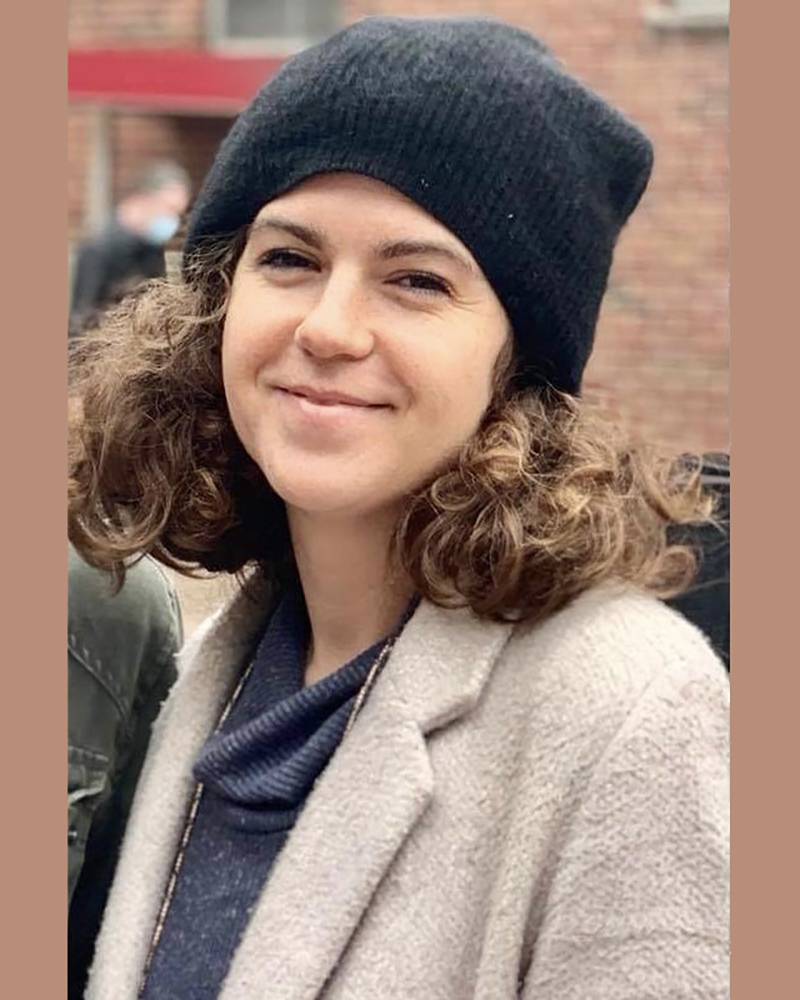Annie Schultz

Annie Schultz, who completed her Ph.D. in the philosophy of education in August 2022 at the School of Education at Loyola University, Chicago, received a grant from CAF for “Things of Beauty: Aesthetics for Environmental Education,” which examined aesthetic and art education’s relationship to ecology and how aesthetics could inform a moral relationship to nonhuman others and the natural environment. Little work heretofore had examined the relationship between aesthetics and education for ecological awareness. As a result, nonhuman others and the natural environment were not epistemically positioned as agents of value. Annie’s project aimed to remedy that this gap “by examining the role that aesthetics broadly and beauty in particular have to play in ecological consciousness.”
Annie’s paper from the research, entitled “Nature in Frames: The Miseducation of the Idle Stare,” was accepted for The Journal of Aesthetic Education. In the paper, she writes, she examined “nature-based edutainment venues, particularly zoos,” and the way they “work as ontological orderings for the human viewers and what the implications might be for an ethical relationship to nonhuman others. Ultimately, this article is interested in the ways nonhuman beings and landscapes are situated in our visual perception and the ethical implications of aesthetic viewing.” Annie presented a paper based on her dissertation (which you can read here) called “The Moral Power of Appreciation: Aesthetics of Environment in Education” at the Ohio Valley Philosophy of Education Society annual meeting. She writes:
In this paper, I explore the connection between thinking artistically and thinking ecologically. I argue for appreciation as a useful way to relate to the nonhuman and a more ethical attitude. I argue that an aesthetic appreciation of natural environments and nonhuman others is different than an experience mediated through scientific or factual considerations; it is grounded in immediate perceptual experience and has more to do with emotion and imagination than with intellectual aims. But this, I argue, is an important part of developing an appreciation that ultimately leads to respect and ethical treatment.
Finally, Annie presented a paper titled “Art Education as Environmental Education” at the American Educational Studies Association annual meeting in November 2022. This paper, writes Annie, “argues that the moral significance of art education be extended to ethical treatment of nonhuman beings and environments. If the value and appreciation placed on works of art were a model for ethical treatment of the nonhuman, then an education for environmental consciousness is possible.”
Annie writes:
With each publication and conference presentation, I aim to raise awareness about the interrelatedness of human and nonhuman needs, spaces, and ways of being. My field, philosophy of education, is still largely anthropocentric, but there is a growing scholarly community within the field that addresses the human relationship to nonhumans and how that relationship intersects with educational institutions and practices. I am proud to be a part of that community and contribute to these scholarly discussions. I am continuously grateful to CAF for supporting my research.

